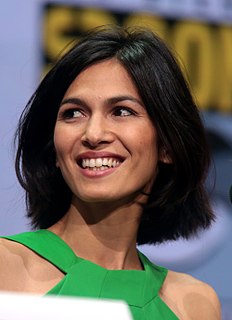A Quote by Julie Plec
I always say, "Never give your lead character an infant. Make them a recovering alcoholic, or the victim of a horrible violent crime because you can really never truly recover from that." It's a story pitfall.
Related Quotes
I can't become naked for everybody. It's never going to be possible for the person to write the whole story completely, so I find bits of myself, bits of what I think in some articles. And I don't give lip service to journalists. I never make them feel comfortable. I say, "It's your job to make the story."
It is never too late, no matter how old you get because anytime or any point in your life you can always have a chance to make a difference. You can always make a change for the better no matter what background you derived from. You can always do your best and be all that you can be because you will always be uniquely you. It is why it is always wise to listen to your eternal heart, your eternal instincts, and what it had always strove for and/or to do because really anybody can make a difference not only in their own lives but in the lives of others. It is never too late to shine; never.
So, it's always different. Some stuff, you want to do because it's a part that you've never played. It's always for story. Sometimes there's a story that you really dig, but there's no part that you're interested in. Sometimes you read a story and you say, "I could do that. I've never done that before. I could do play that part.
I'm not a big fan of violent movies, it's not something I like to watch. And it's not my aim or goal to make a violent movie. My characters are very important, so when I'm trying to depict a certain character in my movie, if my character is violent, it will be expressed that way in the film. You cannot really deny what a character is about. To repeat, my movie end up becoming violent, but I don't start with the intent of making violent movies.
A lot of people think that they are really cool because they don't outline. In my writing group, they would say, "I will never outline. I let the characters take me." C'mon, man - I outline the story, but it's only like one page. It's a list of possible reversals in the story, like things where everything will just change because of this certain reveal or this certain action. Then I start really digging into the character because, to me, I don't care what the story is.




































